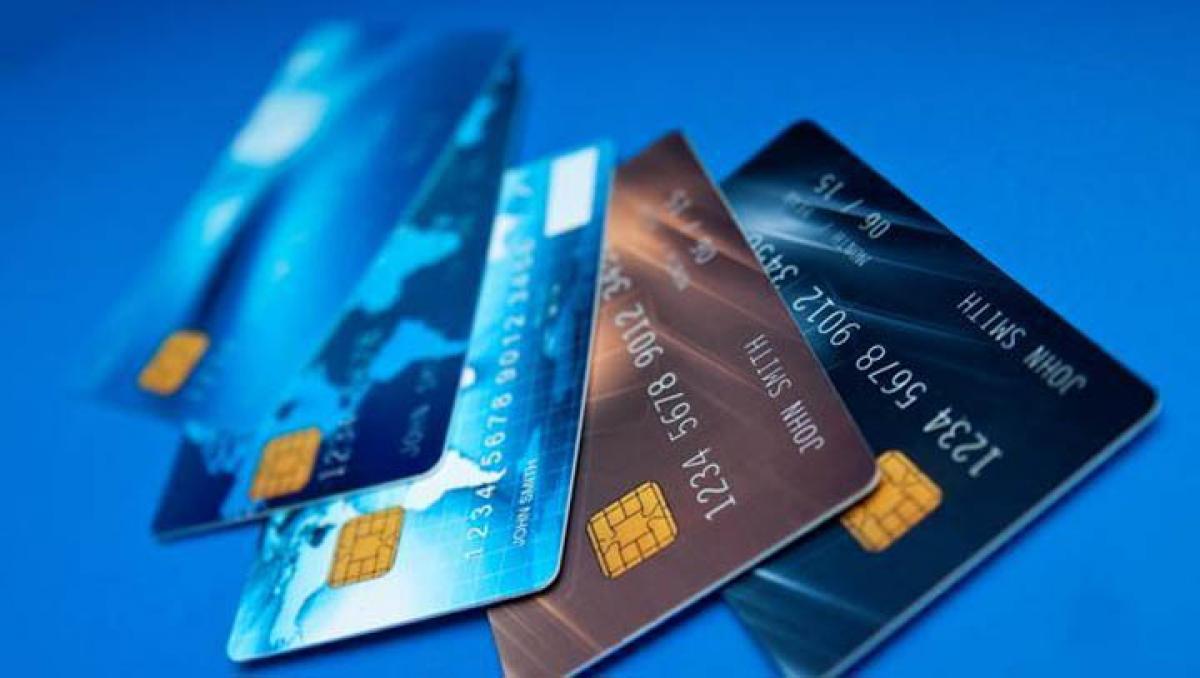Live
- State-level LIMES-2k24 inaugurated
- UP to establish ‘Har Ghar Jal’ village at Mahakumbh 2025
- NDA needs support of 361 LS MPs: Cabinet gives nod to bill for 'one nation one election'
- Kejriwal woos women voters with Rs 2100
- Transforming leftovers: 2 innovative recipe ideas
- MLA seeks shipbuilding industry at Chinnaganjam
- Papon marks 20 years in music: A journey of soulful versatility
- Jasleen Royal to collaborate with Coldplay at ‘Music of the Spheres World Tour’
- Must-Have Jackets for the Modern Man’s Winter Closet
- Dharani Portal Services Suspended for Four Days Across Telangana
Just In

x
Highlights
Prepaid payment cards were seen as a positive development, helping those excluded from the banking system and providing a convenient financial tool, but their use in the Paris terror attacks has revealed a troubling dark side.
Prepaid payment cards were seen as a positive development, helping those excluded from the banking system and providing a convenient financial tool, but their use in the Paris terror attacks has revealed a troubling dark side.

The attackers used an anony mous prepaid card to rent hotel rooms outside Paris the night before the November 13 strikes that killed 130 people, according to Tracfin, the French body tasked with combating money laundering and the financing of terrorism. It was a way to avoid being detected by intelligence agencies.
Prepaid cards have been one of the fastest growing segments of non-cash payments in recent years, and now authorities are concerned they may have become a tool that criminals use to keep their activities hidden and launder their funds. Stamped with the Visa or MasterCard logo and protected with a PIN code, the cards allow users to withdraw funds at ATMs, as well as make purchases in stores and online. However, unlike traditional debit cards, they must be charged in advance with funds.
They also don't bear a person's name, and if the amounts are not too large, no name is ever linked with the card.
In Europe it is currently pos sible to use without showing identification non-rechargeable cards for payments of up to ¤250 or up to ¤2,500 per year for rechargeable cards.
With online bill payments becoming more the norm, as well as the surge in online shopping, access to a payment card of some sort has become crucial in many countries. In the United States, they have become ubiquitous as many government benefits are now disbursed to prepaid cards. Some $148 billion was paid out that way last year according to the US Federal Reserve, although cards have to be registered to receive benefit payments.
And more and more US companies have begun issuing their employees prepaid cards to pay wages, thus cutting expenses related to using cheques and avoiding problems with workers who don't have a bank account.
Non-rechargeable cards have gained popularity as gift certificates, with companies also using them to entice or reward clients.
Volkswagen, for example, is offering US owners of its cars caught up in its emission cheating scandal a $500 prepaid Visa card.
In France, prepaid cards have found a niche with parents, as even minors can use them for payments. “This allows parents to control the finances of their children,“ says France's Banque Postale, which has offered the cards since 2008.
A survey by the Pew Charitable Trusts found that a majority of low-income US users of prepaid cards also saw them as a means to control their spending, and avoid stiff overdraft fees that banks charge on traditional cards.
It is hard to say just how popu lar the cards have become in Europe as authorities don't break out payments by debit or prepaid cards.
When issued by banks in Europe, the prepaid cards are usually linked to a bank account, thus making recharging convenient and ensuring transactions are traceable. But EU directives aiming to boost competition opened up the sector to firms outside the banking sector.
Available to anyone at least 18 years of age, some of these cards can be recharged with cash at newsagents and used to make transfers abroad. And all that without having to show an ID.
That is why Bruno Dalles, the head of Tracfin, the French body tasked with combating money laundering and the financing of terrorism, said this past week he would seek to have prepaid card transactions “appear on our radar."

Next Story
More Stories
ADVERTISEMENT
© 2024 Hyderabad Media House Limited/The Hans India. All rights reserved. Powered by hocalwire.com







